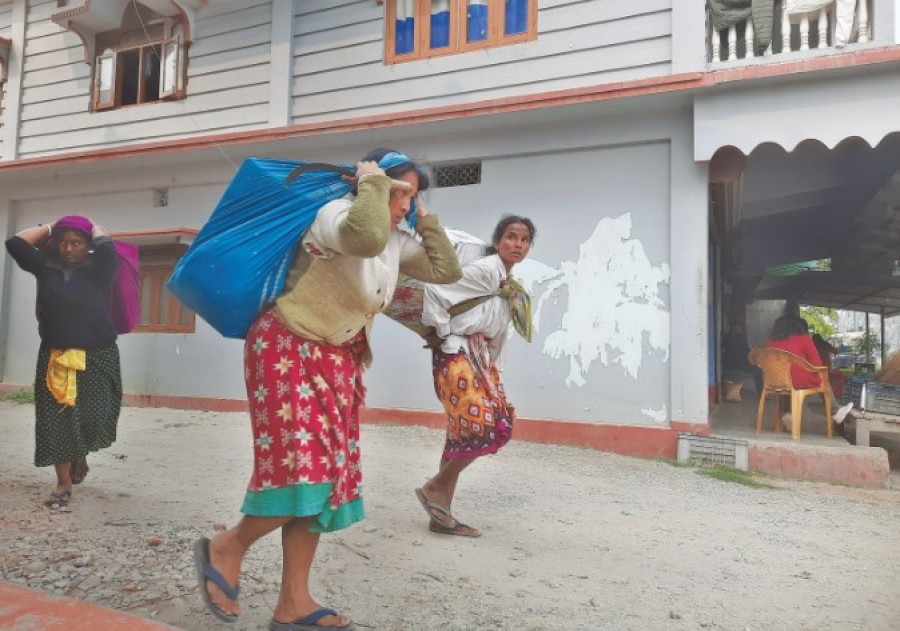Money
Chinese lighter smuggling thrives after Indian ban
Since June last year, pocket lighters, gas-fuelled, non-refillable or refillable cigarette lighters costing below IRs20 have been banned by India.
Parbat Portel
Smuggling of cigarette lighters to India has thrived after the southern neighbour moved to ban single-use plastic products costing below IRs20. Nepali traders would import these lighters mainly from China and re-export to India.
Since June 29 last year, India has placed a ban on the import of pocket lighters—gas-fuelled, non-refillable or refillable cigarette lighters, among other things, costing below IRs20.
However, import of lighters costing IRs20 or above is allowed, according to the notification of the Directorate General of Foreign Trade of India.
These lighters are imported mainly from China to Nepal and exported to India through various porous border points illegally, officials say.
According to Indian media reports, in September 2022, Tamil Nadu Chief Minister MK Stalin wrote to the central government [New Delhi] calling for a ban on single-use plastic cigarette lighters to save the matchbox industry, which is a major source of employment in the southern part of the state.
This traditional wooden matchbox industry supports the livelihoods of over 100,000 people, of which, the majority are women.
In 2019, the Andaman and Nicobar Island authorities had already imposed a blanket ban on single-use lighters citing environmental concerns. India’s central government in 2022, banned 30 single-use plastic items, which also included cigarette packets.
India’s import of refillable, gas-fuelled, and pocket lighters stood at $8.87 million in the financial year 2022-23, which ended March 31, 2023.
The reports said that the Indian matchbox market suffered due to the Chinese single-use plastic cigarette lighters, which were available for IRs10 and can replace 20 matchboxes.
These non-refillable lighters also result in immense plastic waste, with adverse impacts on the environment and health, according to the reports.
The Nepal-India bilateral trade treaty forbids the export of goods imported to Nepal to be exported to India without undertaking any manufacturing activity and vice versa.
But, Nepali businessmen are exploiting the loopholes and exporting the lighters in huge quantities.
Punya Bikram Khadka, director of the Customs Department, said it is difficult to trace and prevent the smuggling. “Our department is solely responsible for looking into imports. The exports, however, do not fall under our ambit.”
According to Khadka, imported goods can be easily sent to India after claiming them to be Nepali products. “It is not allowed to export goods immediately after importing. That’s illegal."
Due to the open border, every economic activity in India has a direct impact on Nepal.
In the past, betel nuts, cardamom, cinnamon, and chilli imported from other countries were also illegally smuggled into India through Nepal.
Despite the import ban, there is a huge demand for pocket lighters in India.
Recently, the Armed Police Force confiscated nearly 500,000 units of lighters from various districts along the Nepal-India border.
Most of the lighters are being smuggled via the Madhesh and Koshi provinces.
A businessman in Jhapa, who wished not to be named, said they buy cigarette lighters in a carton. A carton contains 1,000 lighters and costs around Rs7,000, or Rs7 per piece.
“We sell them at double the price in India.”
According to him, lighters are smuggled in collusion with security officials on the Nepali side.
There is the same process on the Indian side as well which is facilitated by Indian businessmen.
The smuggling process also often involves enlisting the help of paid people to smuggle the goods across the border, disguising them as ordinary people.
“Since a huge profit is associated with the business, it is run in an organised manner,” the businessman said.
Currently, lighters are being imported mainly from three customs points—Biratnagar and Birgunj dry port on the southern border points and Tatopani in the north.
According to customs officials, in the last seven months of the current fiscal year, 110 million pieces of lighters worth Rs714.63 million were imported from the Tatopani border point alone.
Similarly, imports from Birgunj dry port stood at 378 million units worth Rs19.67 million in the review period.
Imports from Biratnager stood at 29,740 units worth Rs758,609.
“We don’t know where these imported lighters go. Such a huge import is not for the Nepali market only."
The Department of Customs said that due to the unusual import figure, import duty on lighters has been increased.
The department has increased the customs duty on single-use plastic lighters from Rs5.34 per piece to Rs7 for the ongoing fiscal year.
Similarly, the duty on reusable lighters has been increased from Rs6.65 per piece to Rs9.31.
A shipping container of lighters is now required to pay approximately Rs1.9 million in revenue, from the previous Rs1.2 million. "The taxes have been increased to discourage imports, but the import has been growing even more," said an official at the customs department.




 16.12°C Kathmandu
16.12°C Kathmandu














